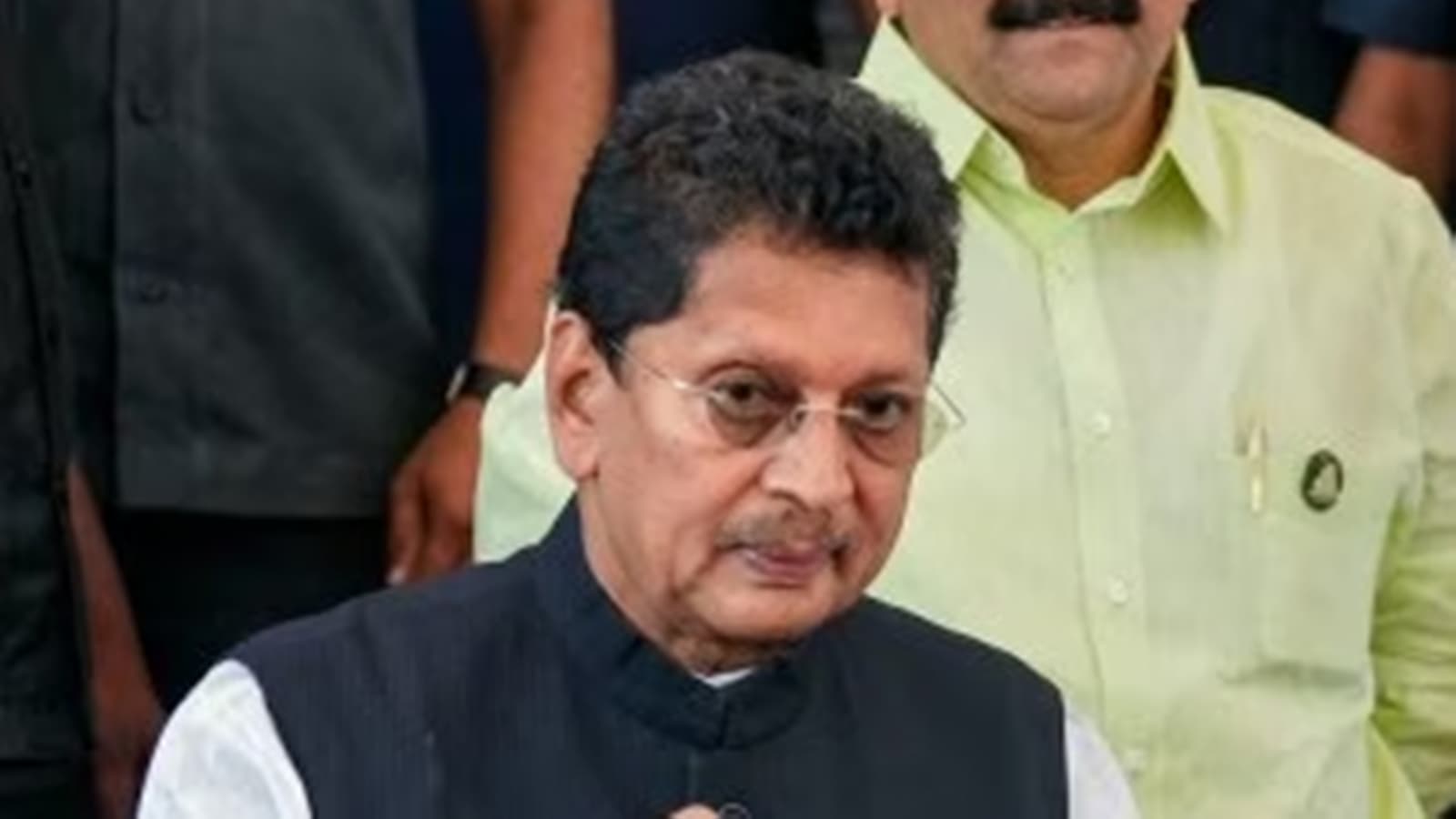Maharashtra govt to not go ahead with Manusmriti reference in school curriculum draft
After the minister’s clarification, the SCERT issued a press release late Monday stating that Marathi and English language would be compulsory from Class 1 to 10.
 Maharashtra Education Minister Deepak Kesarkar. (File photo)
Maharashtra Education Minister Deepak Kesarkar. (File photo)The Maharashtra government will not proceed with all the recommendations from the recently proposed Maharashtra State Curriculum Framework for School Education, said State Education Minister Deepak Kesarkar.
The framework had stirred a controversy for using lines from Manusmriti as reference in one of the chapters in the draft, a move that Kesarkar clarified had not received governmental or the steering committee’s approval before being made public.
Speaking at a press conference in Mumbai on Thursday, Kesarkar expressed regret in excluding Marathi as a compulsory language. “It happened because the draft was made public without following the proper procedure,” he said.
Kesarkar also said that the exclusion of English as a compulsory language for Class 11 and 12 was “because the government is working to offer higher education in regional languages, including technical education”.
After the minister’s clarification, the SCERT issued a press release late Monday stating that Marathi and English language would be compulsory from Class 1 to 10. It also clarified that Hindi, Sanskrit and other Indian and foreign languages are being offered from Class 6, while Classes 11 and 12 students will have to learn two languages — one Indian and the other foreign.
Last week, the State Council of Educational Research and Training unveiled the new Maharashtra State Curriculum Framework (SCF), advocating the integration of Indian Knowledge System (IKS) into School Education (SE). It proposed including texts such as the Bhagavad Gita and Manache Shlok — a composition by Samarth Ramdas Swami — for memorisation enhancement through recitation competitions.
A chapter on “value education and disposition” from SCF, which aimed at character-building for students, sparked controversy as it began with a Sanskrit verse from Manusmriti, an ancient Hindu legal text describing the social system. This inclusion drew criticism from various quarters regarding the intent behind the decision.
Kesarkar addressed the issue, stating, “It was an error on the part of the steering committee that placed the draft in public domain without state government approval. The people involved have expressed regret for this. Let me make it clear, the government does not want to propagate any text and will not include any of this in textbooks.”
After the matter came to light, several educationists questioned the decision to the Manusmriti reference. “There are numerous Sanskrit verses conveying similar meanings, yet the draft selects one from Manusmriti. This decision appears either politically naive or intentionally provocative, potentially offending certain segments of the society,” said a renowned educationist.
While language policy for Classes 3 to 10 lacked clarity; for Classes 11 and 12, English was categorised as foreign language.
Chhagan Bhujbal, Maharashtra Cabinet Minister, also expressed concerns, saying the inclusion of Manusmriti in the curriculum could send a wrong signal among Dalits and OBCs. “Such actions could impact us electorally. This initiative must be halted. Though seemingly insignificant now, it could pose future challenges,” Bhujbal said.







